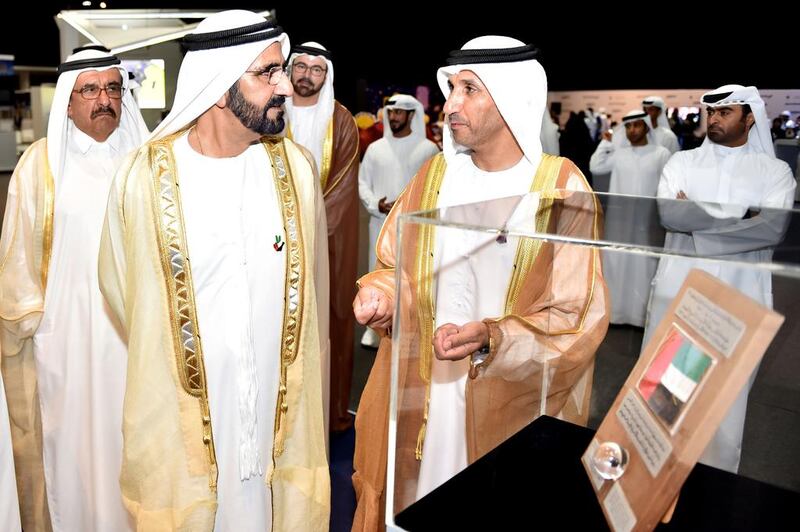ABU DHABI // The Middle East’s first space research centre is expected to open in the Emirates within the next year, the director general of the UAE Space Agency announced on Monday.
The Dh100 million centre in Al Ain will act as an incubator for development and innovation at the federal level.
“We are in the process of the final signature to establish the first space research centre in the UAE, along with the UAE University and that is a really significant achievement,” said Dr Mohammed Al Ahbabi, director general of the agency.
“It will be open to people outside the university and they will offer space projects, research and development for space and it will also serve university students as well as space operators.”
The centre will be funded by the university and the Telecommunications Regulatory Authority, represented by the ICT Fund.
“It is a federal body that funds science and technology mainly in the information, communication and technology domain, and space is a part of it,” he said. “We will be on the board to make sure it is in line with our strategic objectives. The centre will be dedicated to research. This is how science progresses.”
Existing buildings will be used until the centre gets its own site.
“I think this is a big achievement to work with some local funding agencies to establish this,” Dr Al Ahbabi said. “Space is expensive, it is something we have to remember, but it is a good kind of expensive. The return on investment is high but it is not [tangible]. It is there but hard to quantify it.”
He said explaining the benefits of space exploration to the population could sometimes be difficult and time-consuming.
“In some countries, not everyone supports space,” he said. “They say we need to solve the Earth’s problems before heading to space. But we believe in the UAE that space is an opportunity that provides great advantages, not only to the UAE but to humankind.”
The agency will also coordinate with a number of organisations on the project, including the Emirates Mobile Observatory.
“The UAE possesses the resources, practical experience, national will and strong motivation to enter the world of space,” said Dr Khalifa Al Rumaithi, the agency’s chairman. “The space sector plays an important role in the diversification of the UAE economy. There is a long-term strategy to lay a solid foundation for a society built on science and knowledge, leading to innovations and discoveries in space that will stimulate an economy based on advanced technology.”
Matthew Cochran, chairman of the Defence Services Marketing Council, a group of individuals from companies in the defence, space and security industries, said the new centre would gather space-related entities in the country.
“At a federal level, there are a number of government and academic institutions as well as the industry here in the UAE that are looking for a federal body to direct research and development, especially advanced research and development,” he said. “And the more specific the research centre can be focused on space, the better for all three of those branches. Because academia, industry and government have been working together very well throughout the UAE, having a federal body say ‘this is the focus’ will benefit the industry as a whole.”
He said more “made in the UAE” technology would lead to sustainability.
“This shows the UAE is setting up a space agency focusing like a laser on the mission in a very short timescale. This will avoid redundancy and a lot of waste.”
cmalek@thenational.ae






